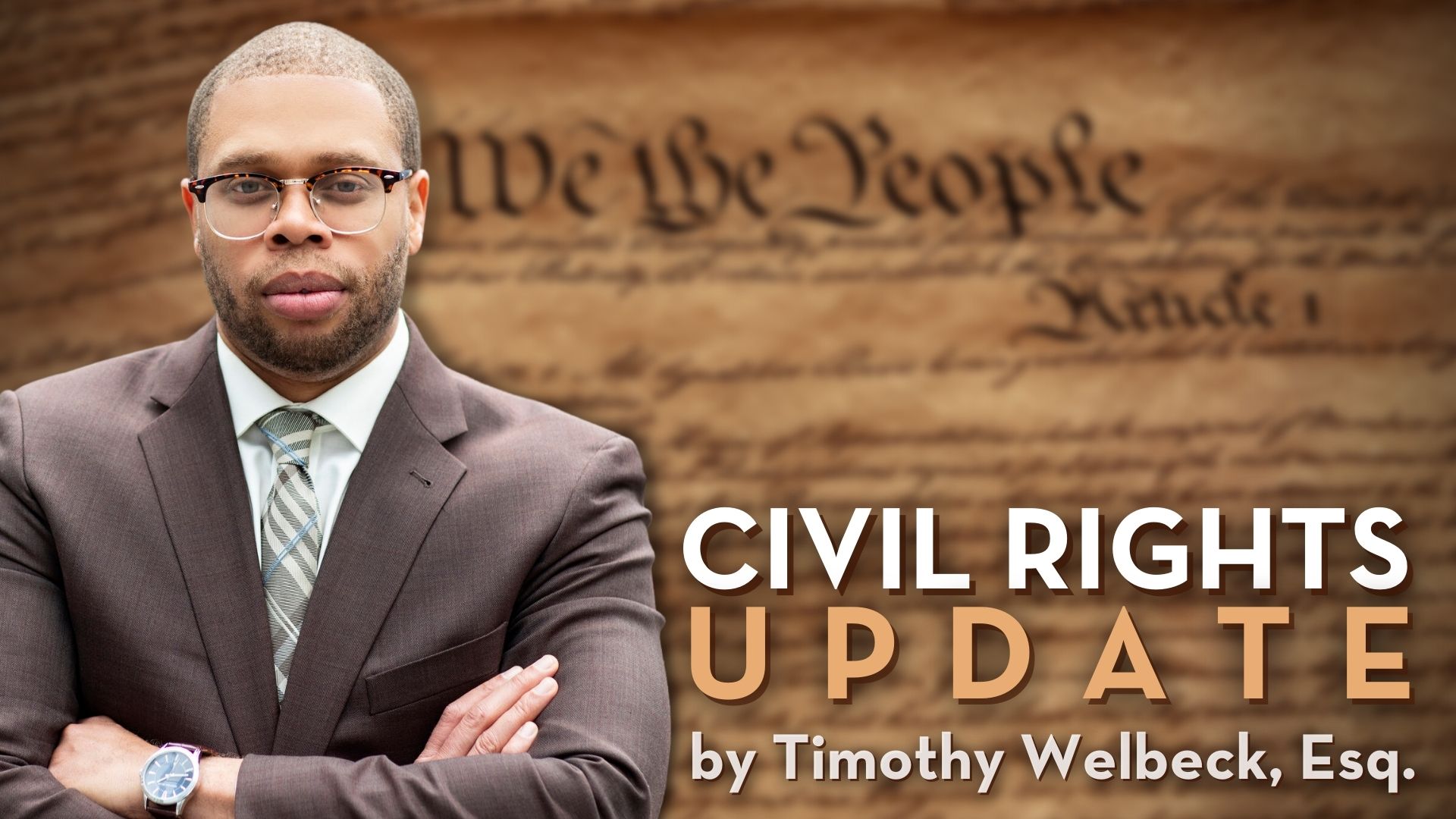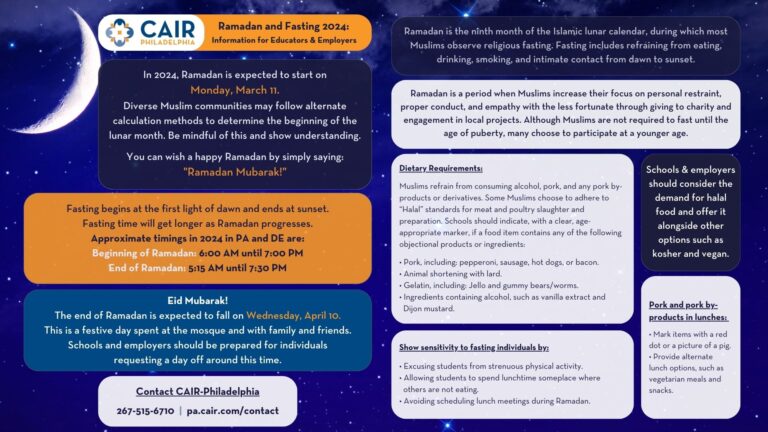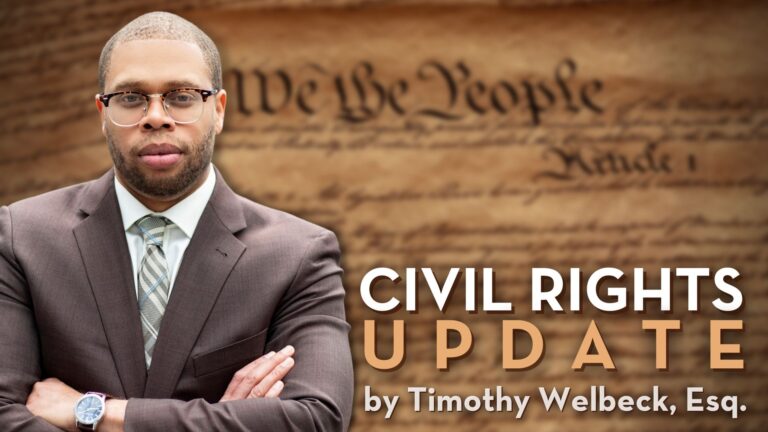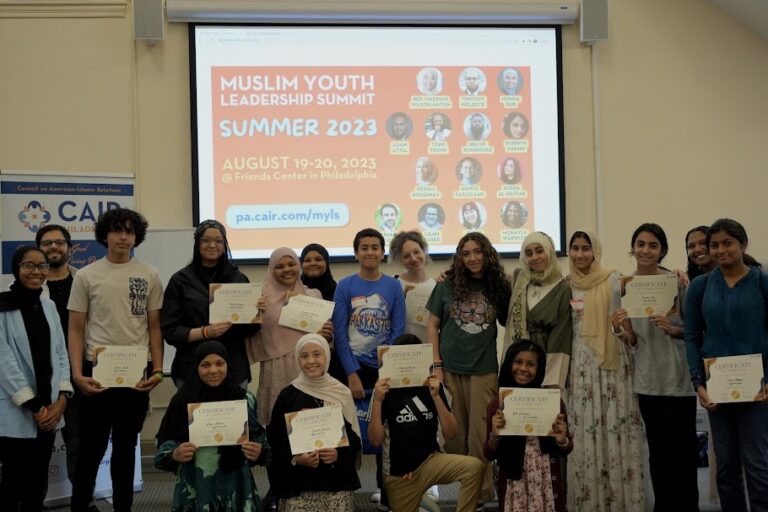The First Amendment of the United States Constitution guarantees the right of American citizens and residents to freely practice religious beliefs and engage in any corresponding religious actions and/or rituals made in accordance with those beliefs. Additionally, federal law expressly prohibits workplace discrimination based on race, color, religion, gender/sex, or national origin. Moreover, the United States Supreme Court has routinely affirmed the right to freely exercise one’s religion, widely held this right applies to state and local governments, and more recently affirmed the obligation of private corporations not to infringe upon the religious practice of their employees or prospective employees.
Unfortunately, American history has taught many people of color and American Muslims that a promise of freedom does not necessarily amount to a guarantee of freedom. In his iconic “I Have a Dream” speech, delivered at the 1963 March on Washington, Rev. Dr. Martin Luther King, Jr., said, “We have come to our nation’s capital to cash a check. When the architects of our republic wrote the magnificent words of the Constitution and the Declaration of Independence, they were signing a promissory note to which every American was to fall heir.” He added, “It is obvious today that America has defaulted on this promissory note…” In a sense, we view our work at CAIR as a means in which to compel America to make good on its promises of religious liberty.
Since starting work at CAIR-Philadelphia on August 1st as Staff Attorney, our office has been inundated with a steady stream of calls and emails from Muslims across the state seeking protection from anti-Muslim discrimination and harassment at work, in public places, and from government agencies. Over the past several weeks, I have engaged in numerous activities to protect the civil rights and liberties of the Muslim community. In doing so, I have received numerous complaints from individuals who experienced significant levels of harassment, including their employer’s refusal to offer religious accommodations at their place of employment. I have written letters to a number of these employers demanding that they allow their employees to exercise their faith freely, as is their legal right under the U.S. Constitution.
Following are more examples:
- A Brother called our office and complained that his employer would not allow him to take the necessary time away from work so that he could go on hajj. I wrote a letter to his employer, and followed up via telephone to ensure his employer allowed him to do so without penalty. The employer agreed.
- A number of Sisters have called to complain that their employer attempted to prohibit them from wearing a hijab at their place of work. I wrote letters to their employers, and their employers now allow them to wear the hijab during work hours.
- One Brother complained about a year-long harassment and anti-Muslim discrimination at his place of employment, including an incident where a coworker struck him. After reviewing his file, I filed a formal complaint on his behalf to the Pennsylvania Human Relations Commission, and subsequently attended to hearing of the man who struck the Brother at work to ensure he received fair representation during the hearing.
- Finally, a Sister involved in an automobile collision feared she would not receive a fair hearing because eyewitnesses of the accident changed their stories after seeing her hijab once she exited her vehicle. I attended her hearing and represented her; she received a favorable outcome as a result.
These are just some of the scores of complaints of discrimination that have been reported to our office in the past month, cases in which the intervention of CAIR-Philadelphia has helped insure that the religious and civil rights of American Muslims of the Greater Delaware Valley will always be defended.
At a time when the federal administration in Washington proposes and creates policies that threaten to roll back over a half-century of progress in civil rights, women’s and gender equality, and consumer and environmental projection, and vulnerable communities are once again facing harassment and discrimination, and the voices of bigotry and hatred are unleashed across the land, the Council on American-Islamic Relations is a crucial player in the coalition to return our nation to the path of peace, justice, and mercy.





